Photographs: Reuters.
Even when America takes the credit for killing one of the world's most wanted terrorist, the cost of the operation will remain a heavy burden on its economy.
Can the United States really rejoice over this victory?
Osama's death may be the end of one enemy, but its current biggest enemy -- the burgeoning fiscal deficit -- will continue to haunt Americans.
. . .
Osama hunt: This is what US taxpayers paid
Image: Pakistani policemen walk past a compound where Osama was killed.Photographs: Faisal Mahmood /Reuters.
The operation has cost American taxpayers more than $2 trillion and the indirect expenses would be much higher, said a Financial Times report.
According to The Congressional Research Service, the government has already spent $1.283 trillion since 2001 besides its usual military expenditure. This is set to escalate to a total $1.8 trillion by 2021, according to The Financial Times.
. . .
Osama hunt: This is what US taxpayers paid
Image: US soldiers with the C Troop 1-71 CAV chat with residents as they patrol in Gorgan, Afghanistan.Photographs: Denis Sinyakov/Reuters.
According to a Congressional Budget Office (CBO) report published in October 2007, the US wars in Iraq and Afghanistan could cost taxpayers a total of $2.4 trillion by 2017 with mounting interest costs as the war is financed with borrowed money.
The CBO estimated that of the $2.4 trillion long-term price tag for the war, about $1.9 trillion of that would be spent on Iraq, or nearly $6,300 per US citizen.
. . .
Osama hunt: This is what US taxpayers paid
Image: Soldiers with the U.S. Army's 1-320 Field Artillery Regiment.Photographs: Bob Strong/Reuters.
Joseph Stiglitz, winner of the Nobel Prize in Economics, has stated the total costs of the Iraq war on the US economy will be $3 trillion in a moderate scenario.
While the ten biggest defence budgets of different nations for 2010 amount to a total of slightly more than $1.1 trillion, according to the latest Military Balance report from the International Institute for Strategic Studies, the defence budget of America alone, at $693 billion, accounts for more than 60 per cent of this total of $1.1 trillion.
. . .
Osama hunt: This is what US taxpayers paid
Image: US Army 1SG Brian Sheldon (R) member of Embedded Training Team (ETT) and an Afghan policeman (L).Photographs: Goran Tomasevic/Reuters.
In February 2009, Congressman Barney Frank, D-Mass, had called for a reduction in the defence budget: "The math is compelling: if we do not make reductions of about 25 per cent of the military budget starting fairly soon, it will be impossible to continue to fund an adequate level of domestic activity."
From a surplus of $236 billion in 2000, the US economy has a record high fiscal deficit.
. . .
Osama hunt: This is what US taxpayers paid
Image: The World Trade Center south tower (L) bursts into flames during the Sept 11 attacks.Photographs: Sean Adair/Reuters.
The US has faced a deficit with a rise in government spending for military operations in Afghanistan and Iraq and a $1.35 trillion tax cut.
This fiscal year, America's fiscal deficit is a shocking $1.5 trillion. The US government's gross debt amounted to 99.5 per cent of teh GDP this year.
It will hit 102.9 per cent of the GDP in 2012 and 111.9 per cent in 2016, according to a forecast by the International Monetary Fund.

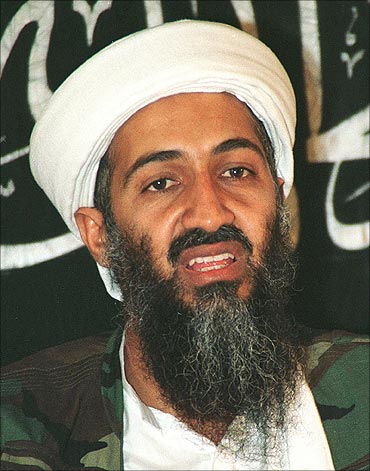
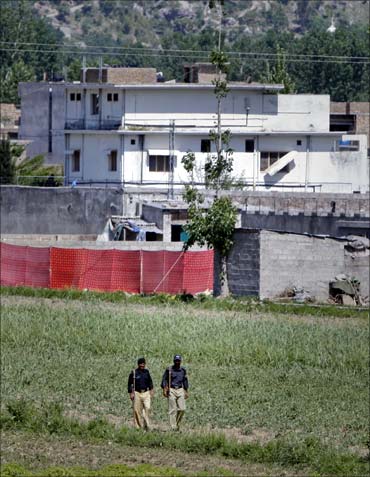
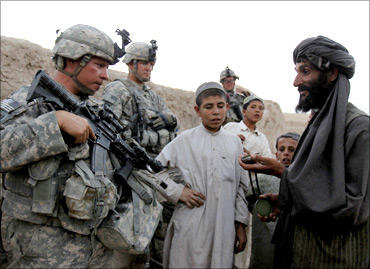
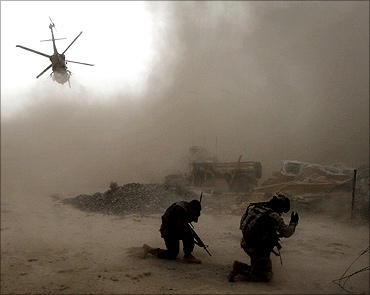
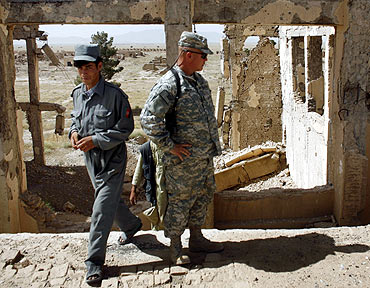
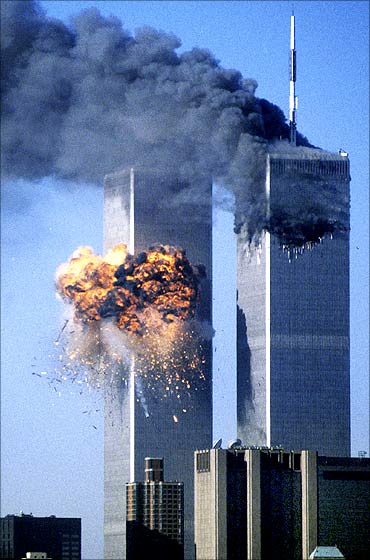
article